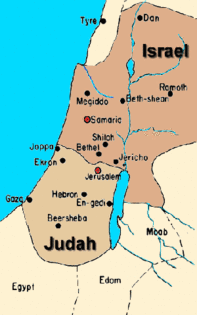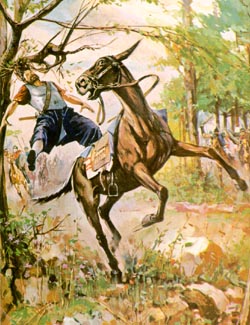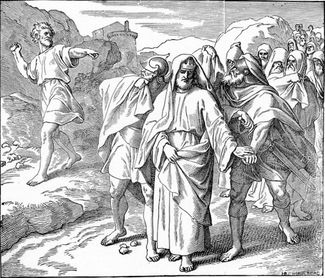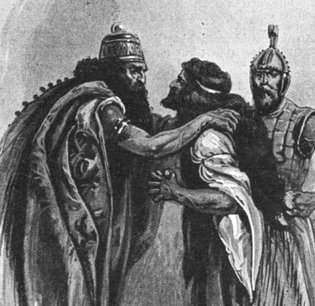David the King: Judah, Israel and the Assyrian Empire
In chapter 20 of Second Samuel, the House of David goes to great lengths to quell any further civil unrest between the people of Judah and the rebelling elements of Israel. David isolates his ten concubines in the very definition of a gilded cage, a clear indication of some perceived taint caused by Absalom and a meaningful reference to David's own disastrous romantic decisions. David also sends Joab, his most trusted lieutenant, to deal with any betrayers who would replace Absalom as a new champion of the kingdom of Israel. Directly following Absalom's defeat in the forest of Ephraim, the people of Israel maintain a vocal opposition to the rule of Judah, though they don't take up arms. Sensing a new rebellion in the making when Amasa, one of David's advisors, fails to organize the leaders of Judah following the rise of a popular dissident named Sheba, David orders the death of Amasa and the pursuit of Sheba before further trouble can arise. In this chapter, David's justice is swift, brutal and designed to shock the Israelites into submission.




